Department Of Cell And Developmental Biology
-

Vanderbilt names spring 2024 Seeding Success Grant awards
Thirteen innovative projects across seven colleges and schools have been selected for the spring 2024 round of Seeding Success internal grants. The Office of the Vice Provost for Research and Innovation announced the recipient list on May 31. Read MoreJun 25, 2024
-

Chancellor announces 2024 Faculty Fellows, grants $40,000 per year to support scholarship and research
Thirteen outstanding faculty members from across the university have been selected for the 2024 cohort of Chancellor Faculty Fellows. This group is composed of highly accomplished, recently tenured faculty from a wide variety of disciplines and areas of expertise. Read MoreJun 11, 2024
-
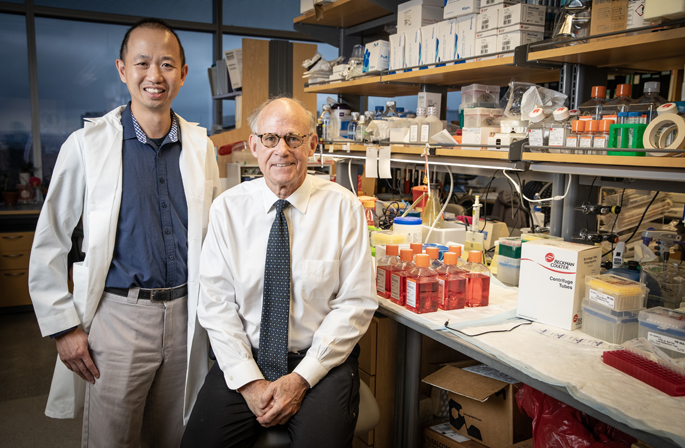
Colorectal cancer ‘cartography’ reveals an avenue to improved immunotherapy
Vanderbilt University Medical Center researchers have discovered why most colorectal tumors escape detection and destruction by the body’s immune system. Read MoreDec 8, 2023
-
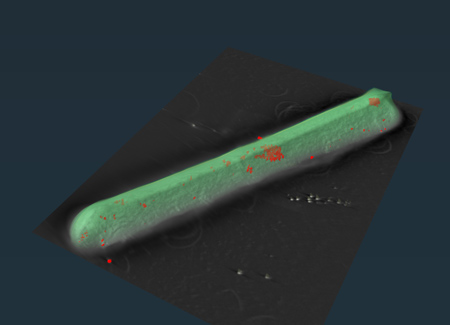
Novel C. diff structures are required for infection, offer new therapeutic targets
Vanderbilt research discovers that iron storage “spheres” inside the bacterium C. diff — the leading cause of hospital-acquired infections — are important for infection in an animal model and could offer new targets for antibacterial drugs. Read MoreNov 15, 2023
-

-
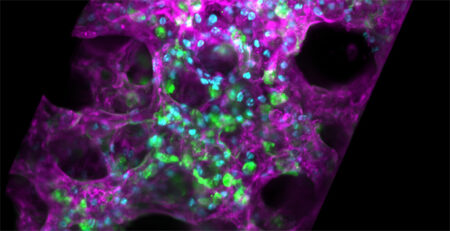
Vanderbilt researchers envision the potential to grow new lungs
Using a four-dimensional microscope that allows them to watch a tissue putting itself together, researchers at Vanderbilt University Medical Center have achieved a rare feat in science — they have shattered a long-standing dogma about how the lung develops. Read MoreJul 5, 2023
-

Vanderbilt Basic Sciences Apex Lecture: ‘Interrogating stem cell niches during human development’ May 8
The Vanderbilt School of Medicine Basic Sciences is launching the Apex Lecture series, a school-wide seminar series that brings to campus scientists influencing the trajectory of their fields to engage with our scientific community. The inaugural event, “Interrogating Stem Cell Niches During Human Development," features Jason Spence, University of Michigan Medical School. Read MoreMay 3, 2023
-

Department of Cell and Developmental Biology seminar series continues May 8
The department of cell and developmental biology will continue its seminar series this May. On May 1, Dr. Pascal Kaeser presents: “Mechanisms and Roles of Fast Dopamine Signaling," and Dr. Jason Spence presents: “Interrogating stem cell niches during human development" on May 8. Read MoreApr 26, 2023
-

Cell Dynamics Symposium May 18–19
The Department of Cell and Developmental Biology at Vanderbilt University will host the fourth annual Cell Dynamics Symposium May 18-19. Read MoreApr 24, 2023
-
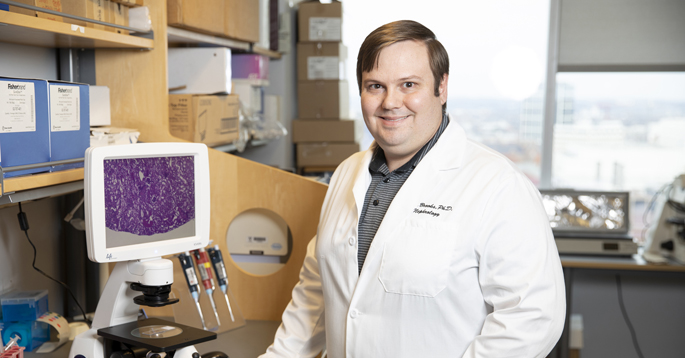
Novel therapeutic target identified for chronic kidney disease
Vanderbilt investigators have discovered a molecular mechanism that promotes chronic kidney disease following kidney injury. Read MoreDec 15, 2022
-
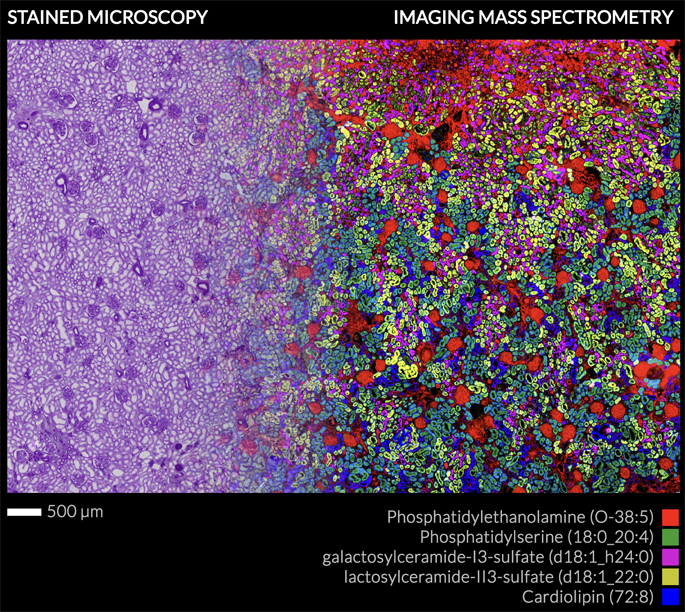
Spraggins, Caprioli win $13.6M from NIH to create “atlases” of the brain, kidney and eye
Researchers in the Vanderbilt University School of Medicine have received three grants totaling $13.6 million from the National Institutes of Health to develop molecular “atlases” of the brain, kidney, eye and other tissues. Read MoreNov 18, 2022
-
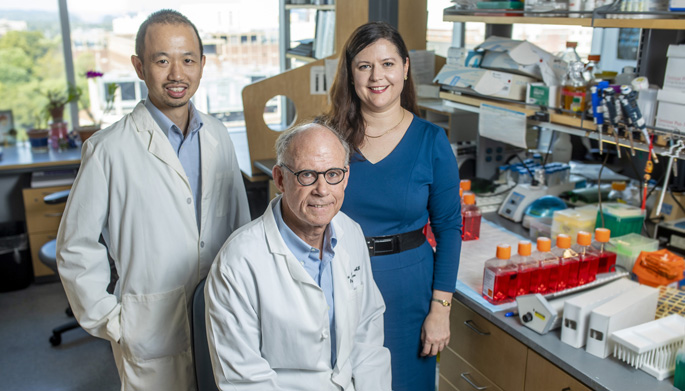
Colon cancer researchers awarded NCI grant for study of early lesions
Vanderbilt researchers are studying precancerous lesions and early cancers in the colon, with the goal of developing new ways to prevent colorectal cancer, the nation’s second leading cancer killer. Read MoreSep 22, 2022
-

C. difficile may contribute to colorectal cancer: study
A Vanderbilt study found that the bacterium Clostridioides difficile (C. difficile) may be a previously unrecognized contributor to colorectal cancer. Read MoreJul 28, 2022
-
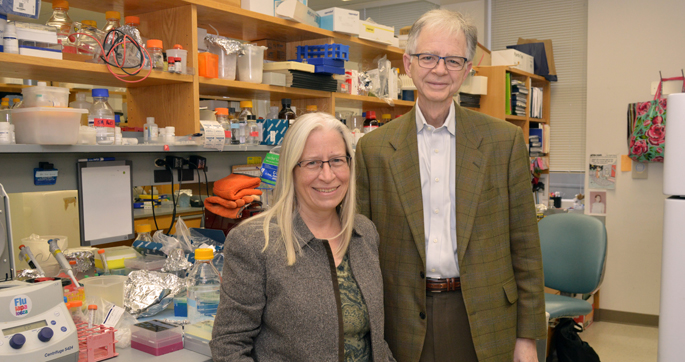
Researchers find potential new target against colorectal cancer
Researchers at Vanderbilt University Medical Center have discovered a potential new target in the fight against colorectal cancer, the nation’s third most common malignancy and, next to lung cancer, the second leading cancer killer. Read MoreJul 21, 2022
-
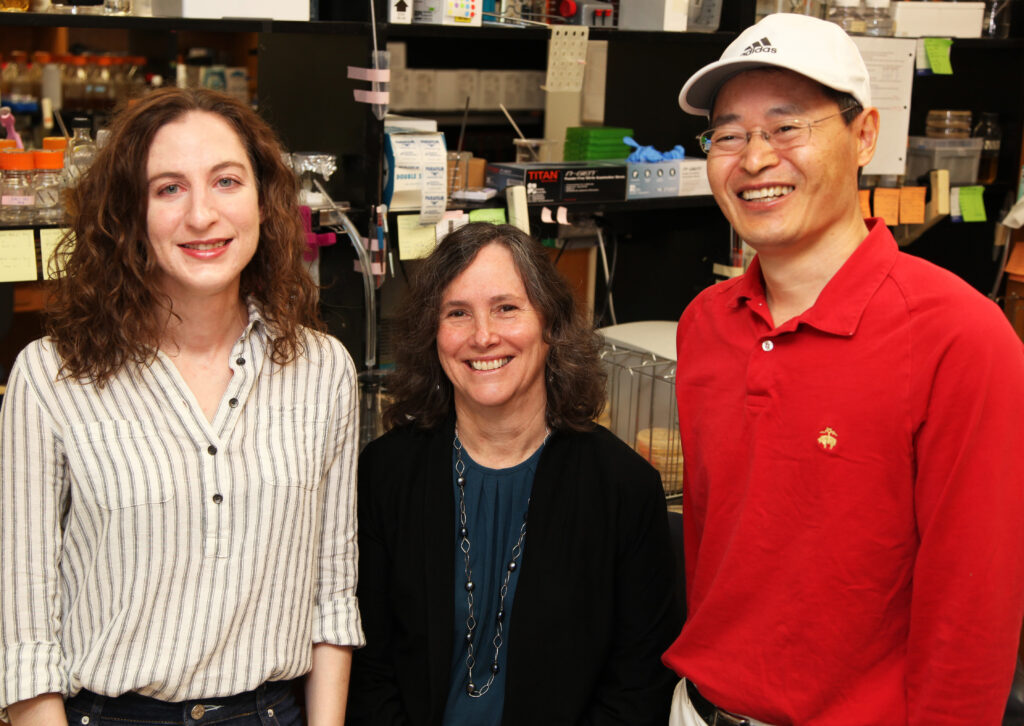
Researchers investigate self-regulation of an enzyme with critical cellular functions
The lab of Kathy Gould, Louise B. McGavock Professor and professor of cell and developmental biology, used a multi-disciplinary approach that included structural biology, biochemistry, and molecular biology to investigate the regulation of enzymes critical for cellular functions including DNA repair, endocytosis, and mitotic checkpoint signaling. Read MoreMay 6, 2022
-

“Supermeres” may carry clues to cancer, Alzheimer’s disease and COVID-19
Vanderbilt researchers have discovered a nanoparticle released from cells, called a “supermere,” which contains enzymes, proteins and RNA associated with multiple cancers, cardiovascular disease, Alzheimer’s disease and even COVID-19. Read MoreDec 10, 2021
-

Burkewitz awarded $100,000 to conduct longevity research at the cellular level
Kristopher Burkewitz, assistant professor of cell and developmental biology, has been awarded $100,000 from the American Federation for Aging Research and the Glenn Foundation for Medical Research to research the biological aging process. Read MoreNov 22, 2021
-

Research Snapshot: Discovery shows how synapses are built and function in the nervous system
Discovering a signaling pathway’s influence on brain development in a nematode sheds light on human nervous systems. Est. reading time: 2 mins. Read MoreNov 8, 2021
-

Uncovering how injury to the pancreas impacts cancer formation
Research from scientists at the School of Medicine Basic Sciences and the Salk Institute for Biological Studies shows that cells in the pancreas form new cell types to mitigate injury but are then susceptible to cancerous mutations. Read MoreOct 29, 2021
-

Vega selected as 2021 Vanderbilt Prize Student Scholar
Paige Vega, a Ph.D. student in the Department of Cell and Developmental Biology, has been selected as the 2021 Vanderbilt Prize Student Scholar. Read MoreAug 11, 2021